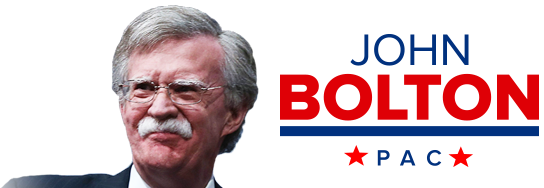President Donald Trump’s Gaza peace plan may already be verging on collapse, Hamas’s release of Israel’s remaining hostages being its sole success. What this limited, but welcome, humanitarian achievement should teach us strategically, however, is its underlying cause.
Since Hamas’s initial 2023 barbaric attack, Israel, assisted by the United States, has fundamentally changed the Middle East’s balance of power. That change is not necessarily permanent, since Jerusalem’s counterattack against Iran and its terrorist proxies is not yet done. Nonetheless, Hamas and Iran had no choice but to release the hostages. Had they been pounded even more heavily, they would have ultimately had to accept peace through surrender.
As Trump turns his attention to Ukraine and Venezuela, he should apply the same strategic logic to those problems. Early signs are not encouraging, although the path in Venezuela, America’s second effort to overthrow the Chavez-Maduro dictatorship, is still in its early days.
Ukraine’s war, however, has persisted for nearly four years. Trump’s return to the White House, his inability to undertake strategic analysis, his short attention span, and his obsession to match Barack Obama in receiving a Nobel Peace Prize are now critical factors. Last week, these characteristics were on full display, leaving combatants and observers alike unclear what direction Trump would pursue.
Trump essentially sees relations between countries as embodied in the personal relations of their leaders, which is not only flawed and incomplete but potentially dangerous for all concerned. With Volodymyr Zelensky, the relationship was rocky from the outset, beginning with the “perfect” phone call between the two that was central to Trump’s first impeachment. Their Feb. 28, 2025, Oval Office meeting seemed to foreclose even a professional, working relationship, with catastrophic consequences for Kyiv.
Still, Zelensky tried hard to close the gap, giving Ukraine’s supporters some optimism, until Trump announced he would meet Russia’s Vladimir Putin in Alaska on Aug. 15. That meeting, reflecting Trump’s often-expressed view of his close relationship with Putin, gave Moscow a free hand to continue and even escalate its invasion of Ukraine and destruction of its civilian power system. Once again, Zelensky went to work on Trump. By the start of last week, there were noticeable signals that Trump was leaning favorably toward supplying Ukraine with Tomahawk cruise missiles. With a 1,500-mile range, Tomahawks would significantly boost Ukraine’s capacity to hit strategic targets (including oil infrastructure) deep inside Russia.
However, predictably, even if not with a metronome’s precision, Trump spoke again with Putin on Thursday, the day before an Oval Office meeting with Zelensky, where Ukraine hoped to nail down commitments to supply Tomahawks. The Trump-Zelensky meeting did not produce Tomahawks or anything else, but instead a Trumpian swing back toward Putin’s position in a “tough meeting.” Trump again called for a ceasefire-in-place on the battlefield, which Zelensky endorsed as a starting point. Next on the schedule, another Trump-Putin meeting, likely in Budapest within weeks. Whether Trump will see his perceived friendship for Putin vindicated, or whether Putin will again work his KGB skills on Trump to achieve Russia’s objectives, remains to be seen.
It bears repeating, although statesmen and journalists seem unable to accept it, that Trump follows no known pattern. His positions change from day to day, or even more often. There is no finality, except perhaps regarding Trump’s real goal, which is not aiding Ukraine against Kremlin aggression, but a Trump Nobel Peace Prize.
Under more coherent leadership, what Washington would do strategically is follow the lessons from the Gaza/Middle East conflict. First, ceasefires are not inevitably steps to a lasting solution, as Gaza has repeatedly shown. Ceasefires are often merely conveniences for one combatant to pause hostilities in its own interest, buying time to renew its aggression when it seems advantageous. For Ukraine, a ceasefire followed by negotiations risks freezing the conflict indefinitely, with Russia holding roughly 20% of Ukraine’s territory, while Moscow rebuilds its military capabilities in anticipation of launching a third invasion.
Second, Trump’s statement — “with property lines being defined by War and Guts” — shows his fundamental moral equivalence between Moscow and Kyiv. There is now no “tilt” toward Ukraine. Denying Kyiv’s request for Tomahawks, to the contrary, shows, if anything, a tilt toward his friend Putin. It is only military force, ultimately, that will cause Russia to back down, just as Israel showed in Gaza.
Before winter sets in, it is critical to take steps to provide Ukraine with what it needs to follow Israel’s example. Even without Tomahawks, lifting restrictions, whether imposed under Trump or Joe Biden, on Ukraine’s ability to use weapons already supplied would be important. U.S. security interests, to deter not just Russia but China and other adversaries, lie in facilitating a clear Ukrainian success in repelling Moscow’s assault. That was true when Russia first attacked in February 2022, and it is still true today.
This article was first published in Washington Examiner on October 20, 2025. Click here to read the original article.


